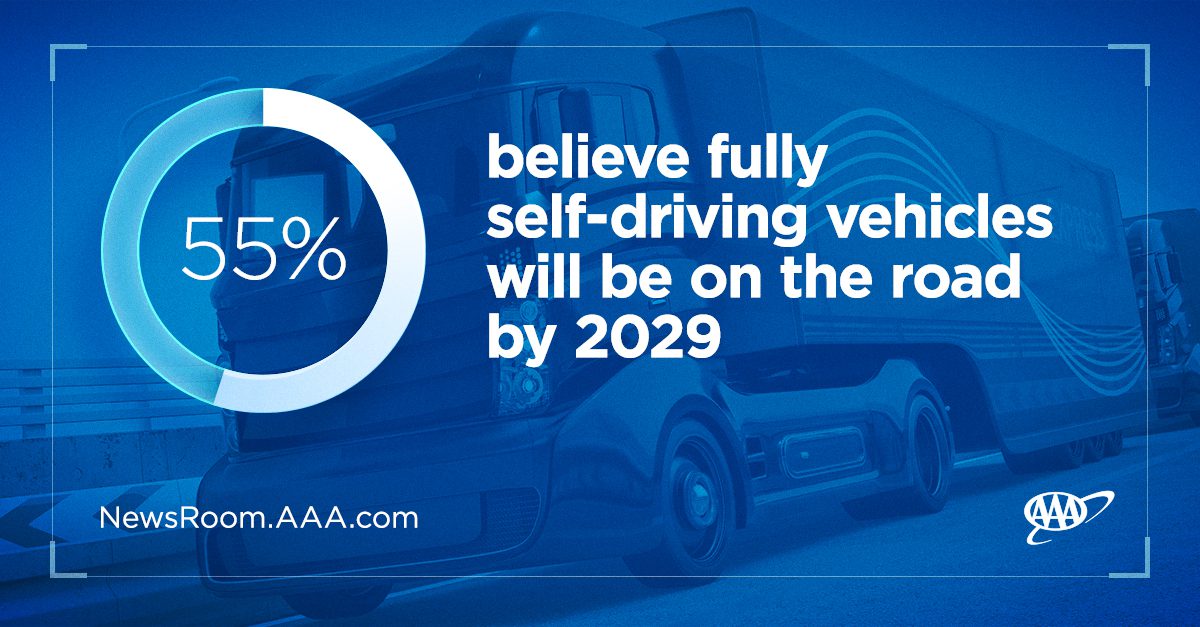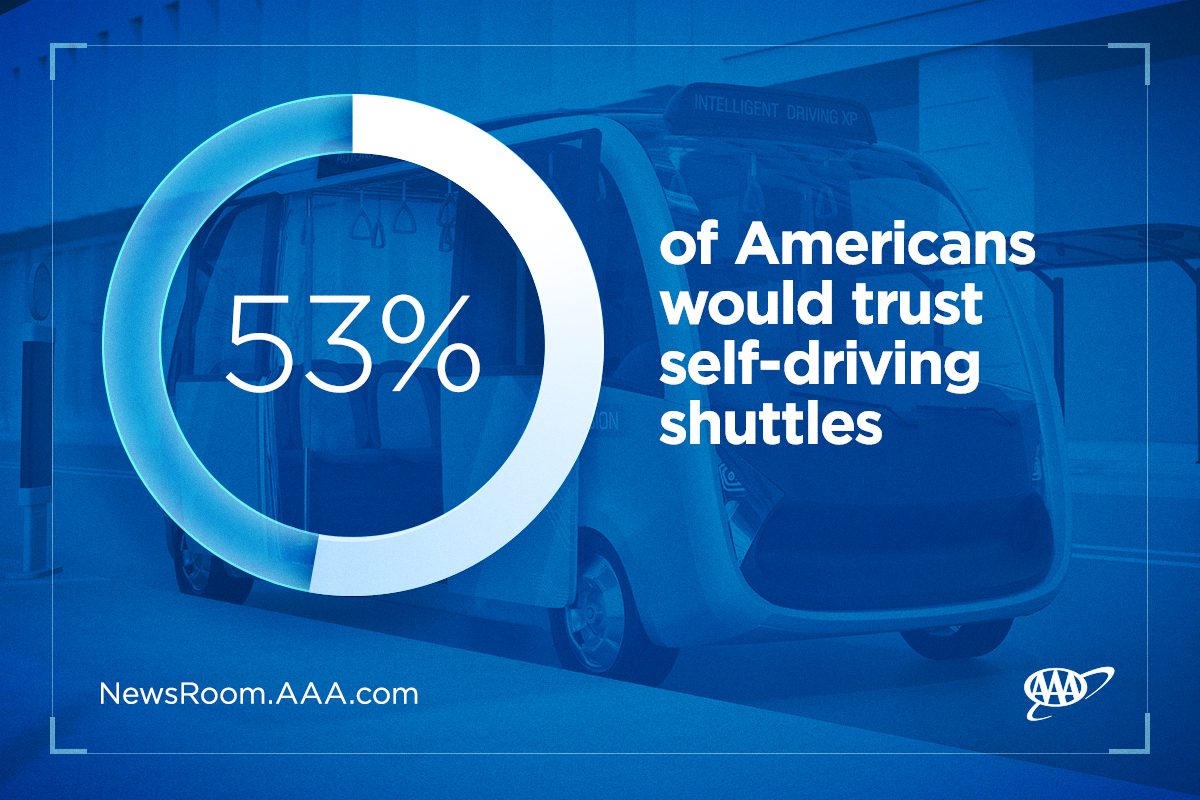
AAA believes experience and education are the keys to gaining consumer acceptance
A number of high-profile incidents involving self-driving test vehicles last year seem to have left an impression on many Americans. AAA’s annual automated vehicle survey has found that 71 percent of people are afraid to ride in a fully self-driving car – indicating that overall feelings toward automated technology have not rebounded since these incidents occurred. For a few years now, Americans have been inundated with a steady stream of information regarding self-driving cars. This could be a contributor toward elevating consumer concerns over this new technology that is still being evaluated and tested.
“Automated vehicle technology is evolving on a very public stage and, as a result, it is affecting how consumers feel about it,” said Greg Brannon, AAA’s director of Automotive Engineering and Industry Relations. “Having the opportunity to interact with partially or fully automated technology will help remove some of the mystery for consumers and open the door for greater acceptance.”

Experience seems to play a key role in impacting how drivers feel about automated vehicle technology. Many vehicles on the road today are equipped with advanced driver assistance systems (ADAS), which are considered the building blocks for fully self-driving vehicles. AAA’s survey revealed that interacting with systems like lane keeping assistance, adaptive cruise control, automatic emergency braking and self-parking significantly improves consumer comfort level. On average, drivers who have one of these four ADAS technology are about 68 percent more likely to trust these features than drivers who don’t have them.
Even more promising, AAA found that Americans are receptive to the idea of automated vehicle technology in more limited applications. About half (53 percent) are comfortable with low-speed, short distance forms of transportation like people movers found at airports or theme parks while 44 percent are comfortable with self-driving vehicles for delivery of food or packages. However, once the passengers become more personal – for instance, transporting their loved ones – one in five remain comfortable.
 Confusion about the capabilities of present day ADAS equipped cars also could be contributing to the uncertainty. AAA found that 40 percent of Americans expect driver support systems — with names like Autopilot, ProPILOT or Pilot Assist — to have the ability to drive the car by itself. Further research has revealed that systems like adaptive cruise control, lane keeping assistance and blind spot warning have almost 20 different names each across 34 vehicle brands. In the absence of clear and consistent information, Americans’ hesitation toward fully self-driving vehicles and similar technology has flourished instead.
Confusion about the capabilities of present day ADAS equipped cars also could be contributing to the uncertainty. AAA found that 40 percent of Americans expect driver support systems — with names like Autopilot, ProPILOT or Pilot Assist — to have the ability to drive the car by itself. Further research has revealed that systems like adaptive cruise control, lane keeping assistance and blind spot warning have almost 20 different names each across 34 vehicle brands. In the absence of clear and consistent information, Americans’ hesitation toward fully self-driving vehicles and similar technology has flourished instead.
AAA recommends that drivers take an active role in learning more about new vehicle technology that is in the marketplace today. This type of education will play a key role in easing fears surrounding self-driving vehicles. The more drivers understand both the benefits and limitations of the technology that is currently available, the more prepared and receptive they will be for the experience of riding in a fully automated vehicle when the time comes. Every year, over 35,000 drivers lose their lives on America’s roadways, most a result of human error. While the road to autonomy will have bumps along the way, connected and automated vehicles have the potential to save thousands of lives every year. This technology also has the potential to improve mobility and convenience for motorists. AAA supports the continued advancement of technologies leading to the development, testing and use of automated vehicle technology.

